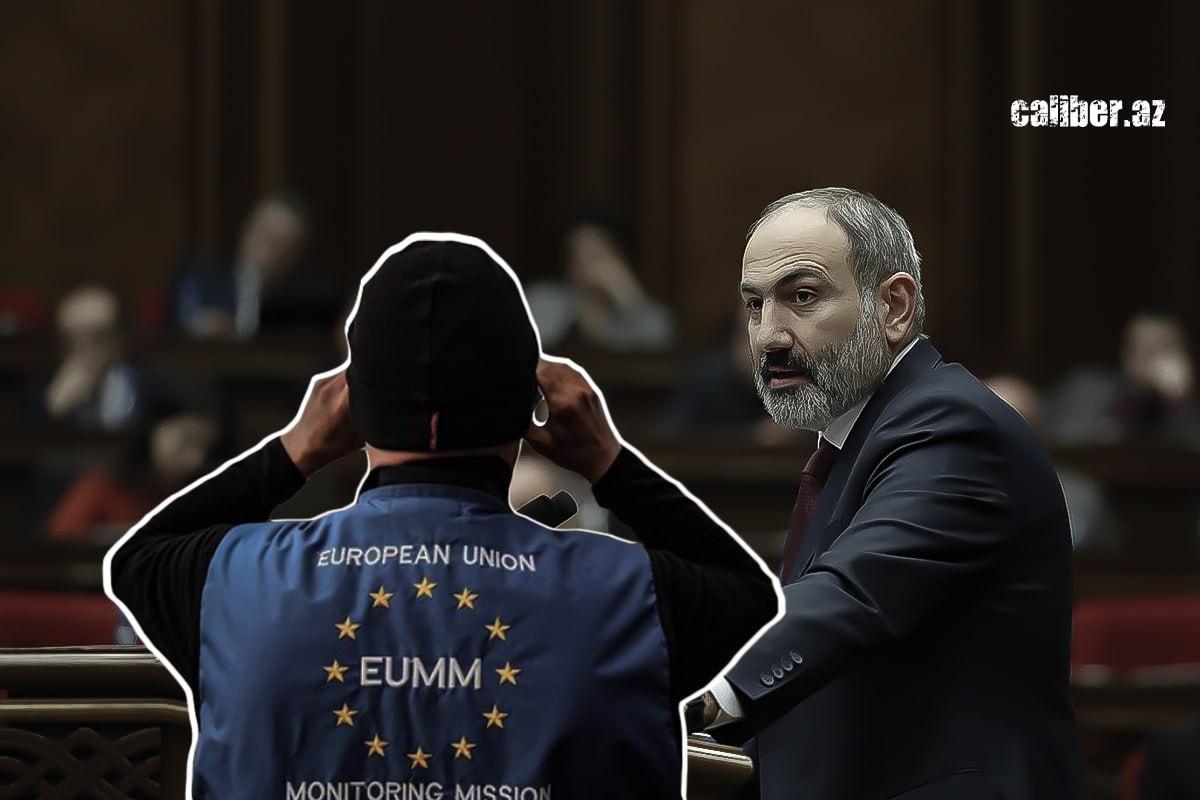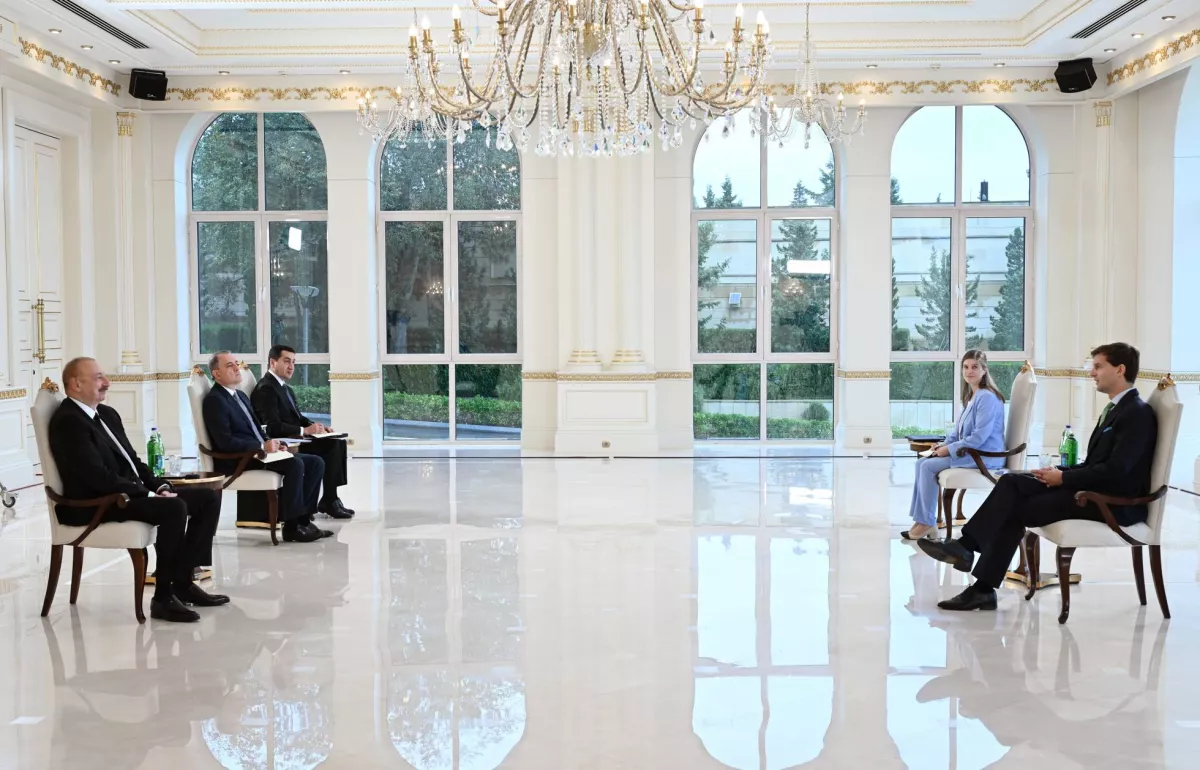EU pushing Armenia into geopolitical trap Baku warns Yerevan against Western influence
The Armenian government continues to cling to the EU's monitoring mission (EUMA), trying to present it as "an important condition for ensuring security in the region." Recently, the Speaker of the National Assembly, Alen Simonyan, told journalists that the EU mission will remain in the republic until a peace treaty is concluded with Azerbaijan. "We are grateful to the civilian mission of EU monitors, to the countries that have sent that mission here, and we hope that these monitors will be here at least until the peace treaty is signed [with Azerbaijan]," said Simonyan.
In turn, Foreign Minister Ararat Mirzoyan stated during a government hour in the National Assembly that the European Union is seriously considering extending the mandate of its mission in Armenia. "Since we do not yet have a signed and ratified peace treaty with Azerbaijan, and the delimitation process is not yet complete, there is no stable and long-term peace, and relations between our countries remain unresolved with ongoing issues. The Armenian side certainly has certain concerns regarding possible actions by Azerbaijan," Mirzoyan said, effectively indicating Yerevan's agreement to extend the mandate of the monitoring mission in Armenia.
Earlier, Armenia also supported the EU's initiative to increase the number of observers after the EU's High Representative for Foreign Affairs and Security Policy, Josep Borrell, announced in December last year that the EU would raise the number of its observers in Armenia from 138 to 209, stating that this will enhance stability along the Armenian-Azerbaijani border.

Formally, the stated purpose of the mission is to promote stability in the border areas of Armenia. However, it is widely known that European observers are intentionally engaged in espionage and gathering intelligence about the region, a concern that has been repeatedly highlighted by Azerbaijan. Baku has claimed that agents from intelligence and law enforcement agencies are operating under the guise of observers within the EU mission and has repeatedly called for the withdrawal of the EU mission from Armenian territory. Azerbaijani President Ilham Aliyev condemned the deployment of a new EU civilian mission in Armenia along the conditional border with Azerbaijan in interviews with Azerbaijani television channels early last year, emphasizing that this could negatively impact Azerbaijani-Armenian negotiations.
On October 14, President Aliyev, while receiving the credentials of the newly appointed Ambassador Extraordinary and Plenipotentiary of Belgium to Azerbaijan, Julien de Fraipont, clearly stated that one of the issues causing distrust in relations between Azerbaijan and the European Union is the extension of the so-called "European observation mission" at the border without the consent or even consultation with Baku. "Why it was necessary?! Because Azerbaijan agreed in October 2022 in Prague that the mission was supposed to stay a couple of months with a limited number of retired military officers. But when the mission was prolonged, they did not consult with us,” the Azerbaijani leader noted, adding that discussions are in progress for further extension.
The president went on to say that the behaviour of the members of this mission, the so-called "binoculars diplomacy", was absolutely unacceptable and was beyond any standards of normal political culture and Azerbaijan will continue to raise these issues in its communications with the EU.

Recently, Karim Valiyev, the Chief of the General Staff of Azerbaijan's Armed Forces, asserted that the European Union's mission exacerbates tensions in the region and should be withdrawn from the conditional border. He made this statement during a meeting in Baku with NATO Military Committee Chairman General Janusz Adamczak. Valiyev emphasized that the deployment of the EU monitoring mission on Armenian territory, as well as the supply of arms to Armenia by certain countries outside the region, particularly France, has led to the resurgence of revanchist forces in Armenia. This development has created significant obstacles to normalizing relations between Azerbaijan and Armenia, further hindering the peace process and escalating tensions in the South Caucasus.
Meanwhile, Yerevan has its own agenda. The strengthening of Armenia-EU relations is occurring against the backdrop of a prolonged crisis in Armenian-Russian relations. It is also clear that the EU's deepening engagement with Armenia fits into a broader Western strategy to reduce Russia's influence and enhance its own presence in Armenia and the region at large. This is further highlighted by the recent visit of a US State Department delegation and representatives from the US Embassy in Yerevan to Martuni.
Baku has repeatedly warned the Armenian side that the activation of contacts between the U.S. and the EU with Yerevan is aimed at promoting Western geopolitical interests in the South Caucasus through destabilization in the region. Under the pretext of providing assistance in resolving relations between Baku and Yerevan, the West is attempting to deploy its own "peacekeeping" contingent in the region under NATO's auspices. It is clear to all regional players that, by following the policies of the European Union and NATO, Armenia is creating new military threats in the region, risking the loss of what remains of its statehood. Armenia's chances of escaping the geopolitical trap in the Caucasus are diminishing rapidly.








